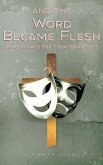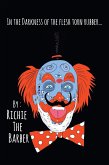Samuel Butler's "The Way of All Flesh" is a seminal work that intricately explores the struggles between individual identity and societal expectation. Written in a semi-autobiographical style, Butler employs an innovative narrative approach that combines realism with sharp social critique, deftly illustrating the complexities of family dynamics and the constraints of Victorian morality. The novel delves deep into the protagonist's life, revealing the oppressive nature of parental influence and the quest for self-realization, all while employing vivid imagery and a poignant, often satirical tone that engages the reader both intellectually and emotionally. Butler, a controversial figure of the Victorian era, drew from his own life experiences as the son of a clergyman to craft this powerful narrative. His upbringing in the stringent confines of religious orthodoxy and the intellectual rebellion that ensued profoundly influenced his literary voice. "The Way of All Flesh" reflects Butler's desire to critique not only the prevailing attitudes of his time but also the broader human condition, emphasizing themes of liberation and the search for authenticity that resonate with modern audiences. This novel is highly recommended for readers interested in existential inquiries and the evolution of individualism. Butler's incisive observations and rich, nuanced storytelling invite contemplation about the timeless conflict between societal norms and personal aspirations, making it a pivotal read for those who appreciate literature that probes the depths of human experience.
Dieser Download kann aus rechtlichen Gründen nur mit Rechnungsadresse in A, B, BG, CY, CZ, D, DK, EW, E, FIN, F, GR, H, IRL, I, LT, L, LR, M, NL, PL, P, R, S, SLO, SK ausgeliefert werden.









